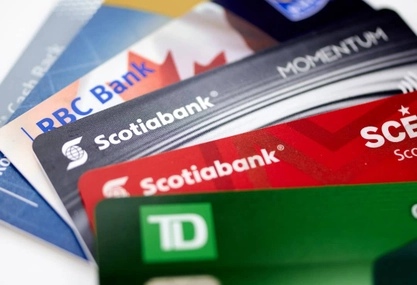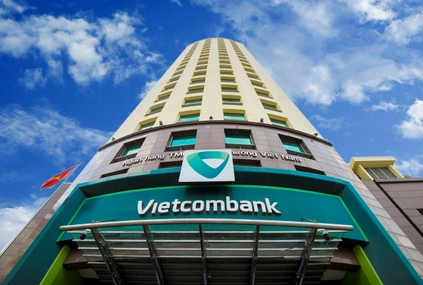Banks and company finances are the two forms of popular credit institutions. So what is a bank? What is a finance company? What are the differences between banks and finance companies?
1. What is a bank? What operations does the bank make?
In accordance with the definitions prescribed at the Article 4 of the Law on Credit institutions 2010, amended and supplemented in 2017, Bank means a type of credit institution which may conduct all banking operations under this Law.
Based on their characteristics and operation objectives, banks include Commercial banks, policy banks and cooperative banks. In particulars:
- Commercial bank means a type of bank that may conduct all banking operations and other business activities under this Law for profit.
- Policy banks are established by the Government operating not for profit to implement the State’s socio-economic policies. (Article 17, Law on Credit Institution)
- Cooperative bank means a bank of all people’s credit funds established by people’s credit funds and some legal entities by contributing capital under this Law for the main purposes of systematic link, financial support and capital balancing within the system of people’s credit funds.
Currently, commercial bank is the most popular form in Vietnam. Operations of commercial banks are prescribed at the Section 2, Chapter IV of the Law on Credit Institution.
Within that, banking operations of commercial banks are as follows:
- Taking demand deposits, time deposits, savings deposits and deposits of other types.
- Issuing deposit certificates, promissory notes, treasury bills and bonds to raise capital.
- Extending credit by:
+ Lending;
+ Discounting and re-discounting negotiable instruments and other valuable papers;
+ Providing bank guarantee;
+ Issuing credit cards;
+ Domestic factoring; international factoring, for banks licensed for international payment;
+ Other forms of credit after obtaining the State Bank’s approval.
- Opening payment accounts for clients.
- Providing payment instruments.
- Providing the following payment services:
+ Domestic payment services, including: Check, payment order, authorized payment, collection, authorized collection, letter of credit and bank card, and collection and payment services
+ Providing international payment services and other payment services after obtaining the State Bank’s approval.
Beside banking operation, commercial banks also perform the other operations such as:
- Borrowing of loans from the State Bank, credit institutions and financial institutions. - Opening of accounts at the State Bank, other credit institutions, or offshore deposit accounts.
- Organization of and participation in payment systems
- Capital contribution and share purchase
- Participation in the monetary market
- Dealing in and provision of foreign exchange services and derivative products
- Entrustment and agency
- Other business activities of commercial banks such as cash management, banking and financial consultancy, asset management and preservation, and safe keeping, securities depository, gold trading and other business activities....

2. What is a finance company? What operations does the bank make?
Pursuant to the Article 4 of the Law on Credit Institution, a finance company is one of 03 non-bank credit institutions, including finance companies, financial leasing companies and other non-bank credit institutions.
Accordingly, the finance company is a non-bank credit institution which implement one or number of banking operations in as prescribed in the Law, except taking deposits of individuals and providing services of payment via client accounts.
Section 3, Chapter IV of the Law on Credit institutions. Prescribes operations of finance companies as follows:
- Finance company performs a number of banking operations as follows:
+ Taking deposits of organizations;
- Issuing deposit certificates, promissory notes, bills or bonds to raise capital from organizations;
+ Borrowing loans from domestic and overseas credit institutions and financial institutions under law;
+ Providing loans, including amortized loans and consumer loans;
+ Providing bank guarantee;
+ Discounting and re-discounting negotiable instruments, other valuable papers;
+ Issuing credit cards, factoring, financial leasing and other forms of credit extension after obtaining the State Bank’s approval.
- Besides, finance companies are allowed to open accounts at the State Bank and commercial banks, branches of foreign banks; Capital contribution and share purchase; perform other business activities of finance companies as follows:
+ Participating in the monetary market; purchase, sell and guarantee bonds;
+ Acting as agents to issue bonds, stocks and other valuable papers.
+ Providing foreign exchange services under the State Bank’s regulations.
+ Acting as insurance agents.
+ Providing banking, financial and investment consultancy services
+ Providing asset management and preservation services...
3. Comparison between bank and finance company
Based on the regulations on banking operations of banks and finance companies, it can be seen that both banks and finance companies have many similar operations, within that, finance companies perform most of banking operations such as loans, deposits or issuing bonds...
However, the scope of professional activities of finance companies are limited compared to banks. At the same time, except taking deposits of individuals and providing services of payment via client accounts.
Besides, the legal capital levels of banks are higher than those of finance companies. In particulars, Article 2 of the Decree No. 86/2019/ND-CP on legal capital levels of credit institutions as follows:
- A commercial bank VND 3 trillion.
- A policy bank: VND 5 trillion.
- A cooperative bank: VND 3 trillion.
- A foreign bank branch: 15 million US dollars (USD).
- A financial company VND 500 billion.
- A financial leasing company: VND 150 billion
- A microfinance institution VND 05 billion
A people’s credit fund operating in a commune or township: VND 0.5 billion
- A people’s credit fund operating in the award; or a people’s credit fund operating in an inter-commune locality, inter-commune and ward locality, or inter-ward locality: VND 01 billion.

![[Update now] Personal income tax policies 2026: 05 major changes](https://image3.luatvietnam.vn/uploaded/500x285twebp/images/original/2026/02/25/update-now-personal-income-tax-policies-2026-five-major-changes_2502135544.jpg)







